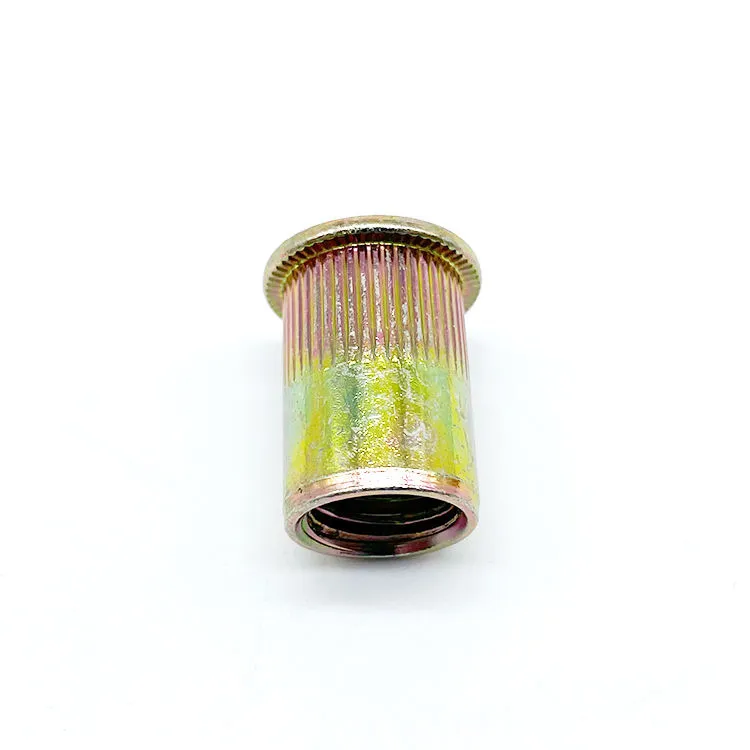

Customized Self-Tapping Screws for Various Applications and Industries
Dec . 16, 2024 18:13 Back to list
Customized Self-Tapping Screws for Various Applications and Industries
Custom Self-Tapping Screws A Comprehensive Overview
In the realm of fasteners, self-tapping screws hold a significant position due to their unique ability to create their own holes in materials while being driven in. This innovative design reduces the need for pre-drilling, making them a preferred choice in various industries, from construction to manufacturing. However, the demand for specific applications often calls for customized solutions. This is where custom self-tapping screws come into play.
Understanding Self-Tapping Screws
Self-tapping screws are specialized fasteners designed to create a thread in the material being fastened—typically metal, plastic, or wood. They are characterized by a sharp point and helical threads. Upon insertion, the sharp point pierces the surface, while the threads cut into the material, securing the screw in place without requiring a pilot hole. This combination of efficiency and structural integrity makes them indispensable in many different applications.
The Importance of Customization
While standard self-tapping screws serve many purposes, there are instances where custom specifications become crucial. Custom self-tapping screws can be tailored in terms of size, shape, thread design, material composition, and coating. The ability to customize ensures that the screws meet specific mechanical requirements, resistance properties, and aesthetic considerations of a project.
1. Material Options Different materials offer varied benefits. Stainless steel is highly corrosion-resistant, making it an excellent choice for outdoor applications or environments exposed to moisture. On the other hand, carbon steel, often zinc-plated, may provide sufficient strength for indoor use where humidity is less of a concern. Customization allows manufacturers to select the right material to maximize durability and performance.
2. Thread Design The type of thread design can significantly impact a screw's efficacy. Fine threads can be used for applications requiring precision and minimal damage to the base material, while coarse threads are better suited for softer materials where stronger holding power is necessary. Custom thread designs can also be developed to enhance the screw’s performance in specific materials.
custom self tapping screw

3. Size and Length The dimensions of self-tapping screws can vary greatly depending on the application. A custom screw permits the precise length and diameter to match the requirements of a particular project, ensuring secure fastening without compromising the integrity of the base materials.
4. Coatings and Finishes Coatings can enhance a screw's resistance to corrosion and wear. Custom finishes such as powder coating or plating can be applied to achieve additional durability or to match a specific color scheme. This aspect is particularly significant in industries like automotive or construction, where aesthetics might be equally important as functionality.
Applications of Custom Self-Tapping Screws
Custom self-tapping screws are widely used across various sectors. In the automotive industry, specific designs are required to cope with high-stress loads and exposure to harsh environments. Similarly, in the construction sector, they are vital for securing structural components, where unique sizes and materials are crucial for safety and compliance with regulations.
The electronics industry also benefits from custom self-tapping screws, as they are often used in housing electronic devices. Here, the screws need to be compact and fit precisely, ensuring the device’s integrity without damaging delicate components.
Conclusion
In conclusion, custom self-tapping screws represent a vital component in the toolkit of modern engineering and construction. Their ability to cater to specific needs makes them invaluable assets across a wide array of applications. The customization process allows businesses to optimize performance, enhance durability, and achieve the desired aesthetic, resulting in products that not only meet but exceed industry standards. As technology continues to evolve, the role of custom self-tapping screws will likely expand, driving further innovation in their design and application. Investing in the right custom solutions can lead to better efficiency and cost-effectiveness, solidifying the place of self-tapping screws in the fastener market for years to come.
Latest news
-
High-Strength Hot Dip Galvanized Bolts - Hebei Longze | Corrosion Resistance, Customization
NewsJul.30,2025
-
Hot Dip Galvanized Bolts-Hebei Longze|Corrosion Resistance&High Strength
NewsJul.30,2025
-
High-Strength Hot-Dip Galvanized Bolts-Hebei Longze|Corrosion Resistance&High Strength
NewsJul.30,2025
-
Hot Dip Galvanized Bolts-Hebei Longze|Corrosion Resistance&High Strength
NewsJul.30,2025
-
Hot Dip Galvanized Bolts - Hebei Longze | Corrosion Resistance, High Strength
NewsJul.30,2025
-
High-Strength Hot Dip Galvanized Bolts-Hebei Longze|Corrosion Resistance, Grade 8.8
NewsJul.30,2025

